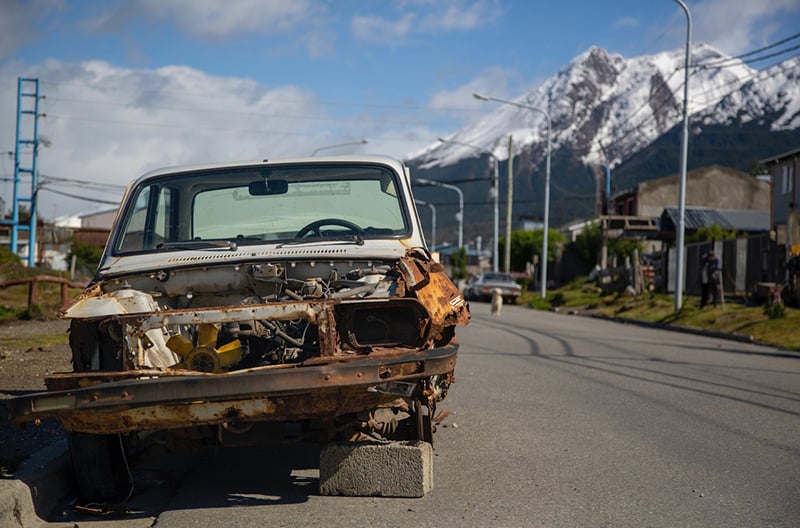
As you’re driving home, you turn your attention to a text message for a few seconds and, when you look up, you’re horrified to see that you’re about to drive straight through a traffic barrier and are heading for a tree. It’s too late to swerve, so you hit the brakes and brace for impact.
Luckily, you’re not injured, but the front of your car is completely wrecked. Once the authorities arrive, you overhear them saying that your car is “totaled”. What exactly does this mean?
We all dread being in this situation, and few of us know what to do when it happens. In this article, we outline when your car is considered totaled, whether this will be covered by your auto insurance, and what it might mean for your auto loan.
When Is a Car Considered Totaled?
A car is considered totaled when it’s impossible to repair, or when fixing it will cost you more than buying a new car. Just like a doctor declares a person deceased, your insurance company will declare your car totaled.
If you’re involved in an accident, it’s hard to believe that your car might have taken its final drive. However, even if it appears to be in great shape on the outside, your car may still be totaled due to crucial parts being badly damaged..
Let’s return to the example above, where your car has taken a knock. Your car insurance company will declare whether it’s worthwhile to fix your car or to flag it as totaled.
They will first calculate your car’s actual cash value (ACV) before the accident. Let’s assume that the ACV of your car was $12,000 before the incident occurred.
Your insurer will then compare this figure with the cost of the damages to determine whether it’s worth salvaging.
For example, if the damages amount to $5,000, then it would make sense to fix your car rather than write it off. On the other hand, if the damages amount to $15,000, then your insurance company will make a loss of $3,000 if they fix it.
Key Point: How to Calculate the Actual Cash Value of Your Car The actual cash value of your car is the amount that you purchased it for, minus the amount that it has depreciated by. For example, if you purchased your car for $20,000 and it depreciated by 40% from the time you’ve bought it, it will be worth $12,000 today. |
It’s important to note that your insurance company may choose to class your vehicle as totaled, even if repairing it would cost less than its ACV. This is because your mechanic may find additional damage once they’ve started repair work.
Your insurer’s decision will depend on the kind of damage your car experienced.
Let’s say after having crashed into the tree, it seemed as though the damage was only limited to the front of your car. This would cost around $10,000 to repair.
However, while the mechanic does the work, they realize that your car’s alignment is off and that the electrical system has also been damaged. The final cost then gets pushed up to $14,000, which is $2,000 above the actual cash value.
To help you determine whether your car is totaled, or to prepare you for the day it may reach the end of its road, here are some signs to keep an eye out for:
1. Your car is older than five years and has bad damage to its frame
After owning your car for five years, its value will already have decreased by 60%. This is because cars are known to be depreciating assets.
The moment you drive them out of the car dealership, their value immediately decreases and this continues until they’re considered totaled.
Key Point: What Is a Depreciating Asset? This is an accounting term that’s used to describe an asset that decreases in value. It can apply to many items—such as cars, appliances, equipment, and electronics. |
Imagine you get rear-ended by another driver who wasn’t paying attention to the road. When you talk to the mechanic, you find out that your vehicle’s frame has been bent and its structural integrity compromised.
Since it’s older than five years, your ACV has already reduced by 60% and, like most of these cases, the repairs will cost a lot more than it would to simply replace your car.
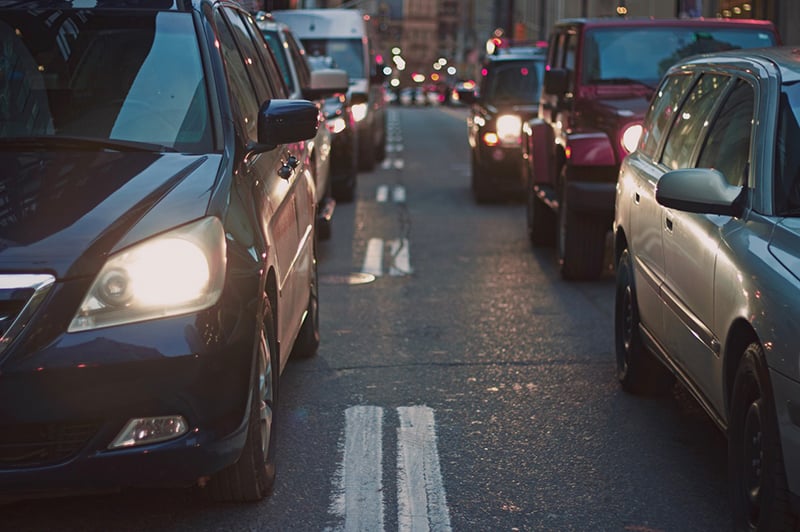
2. Your car is leaking fluids and you can’t drive it
After making your way to your car after a long day at the office, you notice that there’s liquid running out from under it. You get onto your knees and confirm that it’s been leaking fluid.
This is a bad sign because it usually signals expensive damage that your insurance company may not be willing to pay for.
You decide to drive straight to the mechanic, but when you try to start your car, it refuses to work. These are two signs you should dread: leaking fluid and failing to start. Both of these may cost more than the actual cash value of your vehicle to repair, which means that your insurance company may declare it totaled.
3. Your car has driven too many miles
After your car has reached 150,000 miles, it may start to degrade quickly and you should consider replacing it before it loses all of its value. Very few cars manage to reach 200,000 miles, since they usually break down before they hit this benchmark.
If your car passes the 150,000 miles mark and it takes on any additional damage, your insurer may flag it as a totaled car rather than try to have it fixed.
This is because it has already lost most of its value through driving long distances and having it repaired will likely cost more than having it replaced.
4. Your car is too old to take any more damage
Vintage cars will increase in value as they get older because of their rarity, special attributes, and performance. However, if you’re driving a regular car and it’s just celebrated its 20th birthday, then—besides holding sentimental value—it’s likely worth very little.
If you have the bad luck of being involved in a fender bender with your old car, it may be the final nail in the coffin. Instead of being taken to the mechanic, your insurance company may suggest that you take it straight to the scrapyard to salvage the parts rather than have it repaired.
5. Your car is considered totaled according to your state
Different states may also have laws dictating when a car is totaled. For example—if you live in Alabama, your state’s law may deem your car totaled if the cost to repair it is more than 75% of its value. In Arkansas, it’s 70% and in Florida, it’s 80%.
However, the majority of states don’t specify a percentage. Instead, they consider a car totaled based on a comparison between the damage done and the car’s actual cash value.
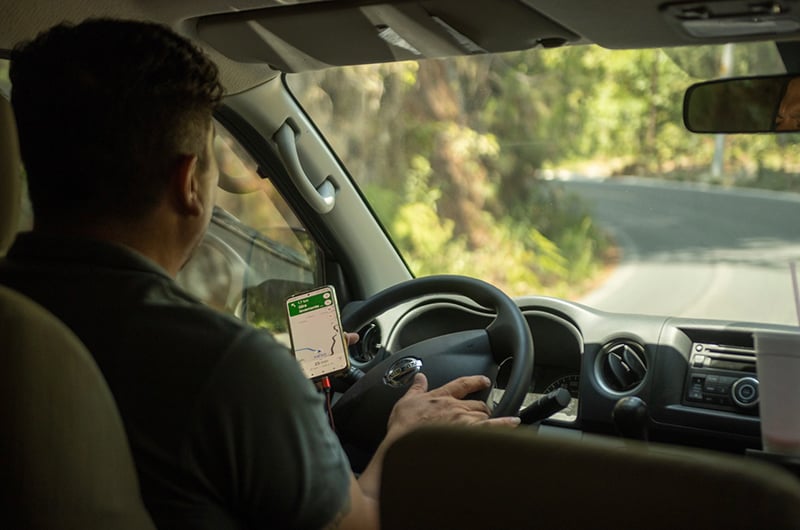
How Is a Totaled Car Covered by Insurance?
Your auto insurance company will most likely pay you the ACV of your car when it’s declared totaled. They will then repossess your vehicle and, in return, you will receive a check for its value.
However, this whole process will depend on the kind of insurance through which you’re making a claim. There are four insurance options:
1. Liability coverage
If you’re hit by a drunk driver and you’re fortunate enough to survive (40% of accidents involving drunk drivers are fatal), you may still have to deal with the administration of a totaled car.
The majority of U.S. states require drivers to have liability coverage in order to drive on the roads. This offers two main categories of protection to third parties, such as yourself.
Firstly, the drunk driver’s property damage coverage will pay for the ACV of your vehicle if it’s been totaled and, secondly, bodily injury coverage will pay for your medical bills if you’re injured.
Your own liability cover will not kick in because you’re not responsible for the accident. Therefore, you will receive a check from the other driver’s insurance company, and your own insurance will remain untouched.
2. Uninsured or underinsured motorist property damage
If you live in New Hampshire, the state doesn’t require you to have car insurance. Drivers from here have to prove that they can handle the financial responsibility of having a car.
However, paying the ACV of your totaled car may cost them far more than maintaining their own vehicle insurance.
For example, if the actual cash value of your car is $15,000 and theirs is $5,000, then this New Hampshire driver may not be financially able to cover the cost of your totaled car.
In this situation, you will have to pay for the damage yourself, unless you have uninsured motorist property damage (UMPD) cover. This is additional car insurance that you can take out that will step in when a driver who’s responsible for an accident can’t pay the bill.
Instead of spending years trying to retrieve the money from them, you can simply claim from this additional coverage.
3. Collision coverage
If you’re the at-fault driver during a car accident and your car is totaled, then your collision insurance will be able to cover the cost of your lost vehicle. This kind of car insurance will pay for damage to your vehicle when you’re responsible for an accident.
Let’s say you’re driving through the middle of town with your grandchildren sitting in the back. It’s been a busy morning and they’re shouting to get your attention. For a second, you look away from the road to make sure they’re okay, and before you know it, you’re heading straight for a pole.
To your relief, they’re both unharmed. However, the same can’t be said for your car. Since it’s already over five years old and you notice that the frame has been damaged, you realize that it’s likely totaled.
This accident was your fault, which means that you need to claim from your collision coverage. Once your claim has been approved, your insurance company will pay you the ACV of your totaled vehicle.
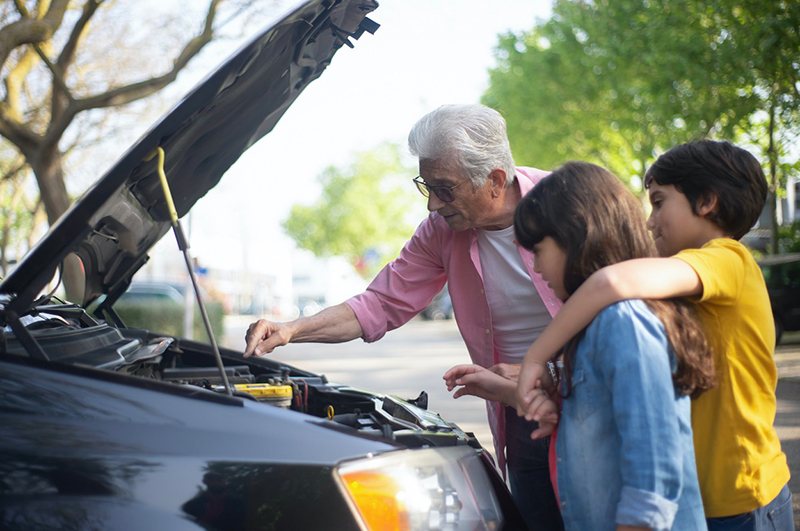
4. Comprehensive coverage
Finally, if your car is totaled for any reason other than a collision, then your comprehensive car insurance will cover the actual cash value of your vehicle.
This kind of insurance takes care of your costs during a number of covered incidents, such as when your car is stolen, damaged by natural disasters like floods and hurricanes, or crushed by falling objects.
Imagine you’re driving along a quiet forest road in the evening. The weather is calm and you’re enjoying the peaceful scenery. However, without any notice, a deer jumps out from the forest line and runs in front of your car.
Besides getting a fright, you’re safe and sound. Your vehicle, on the other hand, has been severely damaged, and—with its mileage above 150,000—you realize it must have been totaled.
Since it will be classified as an animal accident, your comprehensive coverage will step in.
Are There Policy Limits for a Totaled Car?
The amount that an insurance company will pay depends on whether or not you’re claiming from someone else’s liability coverage.
This is because liability cover has policy limits for three categories: bodily injuries per person, bodily injuries per accident, and property damages per accident. For example, your insurance provider may have the following policy limits on your liability coverage:
- $50,000 is allocated for bodily injuries per person.
- $100,000 is allocated for bodily injuries per accident.
- $30,000 is allocated for property damages per accident.
If we return to our example where you’re hit by a drunk driver—but this time, let’s imagine that you’re driving an expensive vehicle that has an ACV of $40,000.
If the drunk driver’s liability coverage is limited to $30,000 for damage to your property, then you will have a shortfall of $10,000.
In this situation, you will either have to pay the additional amount out of pocket or—if you have it—you will have to rely on your underinsured motorist coverage.
However, if you’re claiming from your own collision coverage or comprehensive coverage, the policy limit will usually be the ACV of your car. In other words, there won’t be a limit.
This is because you’re likely paying a high premium to fully cover the expensive vehicle that you own.

Who Will Get the Insurance Check When a Car Is Totaled?
Your insurance will likely pay out the ACV of the car you’ve driven when it got totaled. However, depending on who owns the car, you may not be the recipient of this check.
If you borrowed money to finance your car and you haven’t paid off the full amount yet, then it still technically belongs to your car loan provider. This means that your insurance will pay them the actual cash value of your car rather than extending the check to you.
In some cases, this may leave you with debt on a car you are no longer able to drive. For example, let’s imagine you purchased a car through vehicle finance for $20,000 and you still have to pay off $10,000.
If your insurer pays your lender $8,000 as the ACV of your car, then there’s a $2,000 shortfall that you’d still need to pay.
To help you during these situations, you can take out gap coverage. This additional insurance steps in when your main insurance doesn’t cover the full cost of an event.
Key Point: What Is Gap Insurance? Gap cover is a short-term insurance policy that assists you when there’s an insurance shortfall from your main insurance policy. It will pay the difference between what your insurance pays and what’s left on your bill. For example, if your insurance is willing to pay $400 on a $500 bill, then your gap cover will pay the remaining $100. |
On the other hand, if you’ve already paid off your car or purchased it in full, then your insurance company will pay you directly for the ACV of your car.
Under these circumstances, you can also choose to keep your car. Your insurance company will then issue you a slightly smaller check that doesn’t include your car’s remaining value.
In other words, your insurer will calculate your car’s salvage value, which may be $3,000, and then minus that from its ACV, which might be $8,000. You will then receive $5,000 rather than the original $8,000—but you will get to keep your car.
What to Do after Your Car Is Totaled
It can take time for insurance claims to be settled. You should, therefore, get started with the claims process as soon as possible.
If your car is totaled, you should follow these steps:
- Call your insurance company immediately: As soon as you’re able to, reach out to your insurance company and let them know what happened. If you’re not responsible for the auto accident, reach out to the other driver’s liability insurance company.
- Have your car towed: Your insurance company may be partnered with certain repair shops, which means that it’s easy for them to approve the work that needs to get done. Find out which repair shops your insurer has a relationship with and try to have your car taken there. This might speed up the process.
- Get your paperwork in order: If your car is totaled, you may have to sign over your car’s title to your insurance company. If so, either get the correct documents together or request them from your state’s Department of Motor Vehicles (DMV).
- Find out what your car’s ACV is: Your insurer will determine the ACV of your vehicle. However, it’s good to do your own research beforehand so that you can verify the amount they offer.
- Do the math on your car loan: If you’re still paying off your new car loan, find out how much money you still owe so that you can be prepared to pay any shortfall, or find out whether your gap insurance covers it.
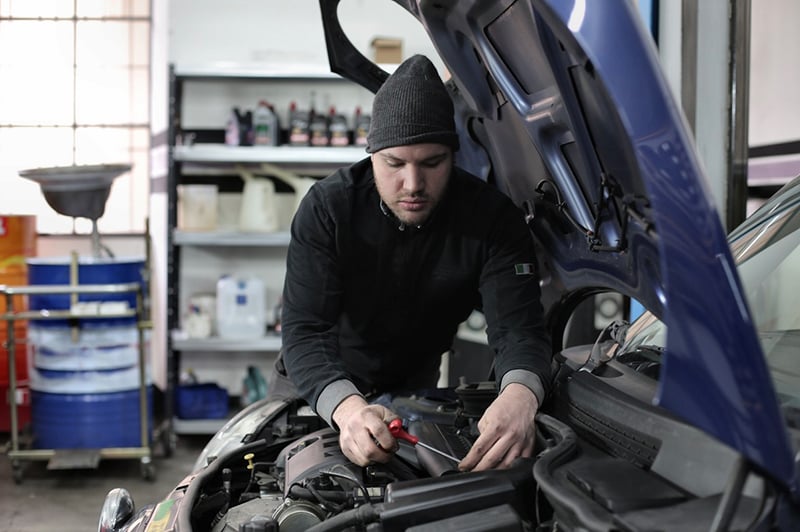
Compare Affordable Car Insurance Quotes through CheapInsurance.com
Unlike our examples, you and your passengers have a high risk of being seriously injured during a car accident that leads to a totaled car.
This will likely be your main focus, and the last thing you’d want to worry about is being able to replace your totaled car.
By taking out decent car insurance coverage, you will be able to focus on what really matters while your car insurance company’s policies take care of the rest.
If you’re worried that you’re not properly covered, simply enter your zip code at the top of this page to get a range of affordable quotes from top car insurance companies.
At CheapInsurance.com, we’ve got you covered!


